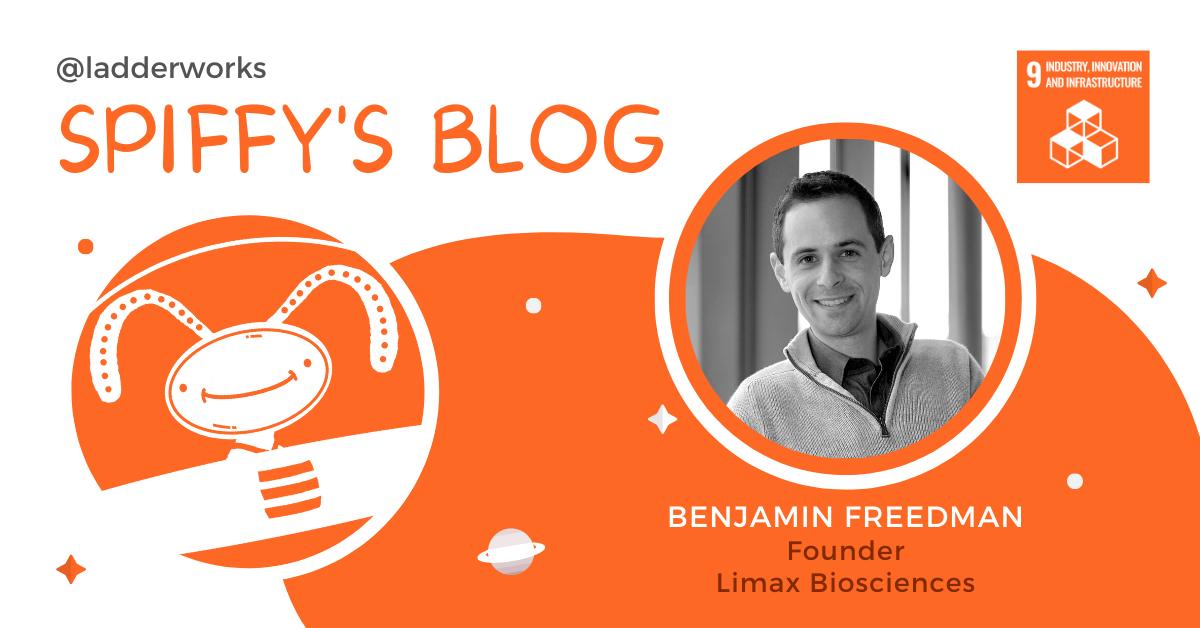Benjamin Freedman: Innovative Adhesives Are Transforming Healing

Hello, gang! It’s Spiffy, and I’m back again on Planet Earth with an eye out for entrepreneurs making the world a more equitable place! Today, I zipped over to Boston, MA, to have a brief chat with Benjamin Freedman, the founder of Limax Biosciences. Let’s take a peek at what he is doing to make a positive impact on the world.
Spiffy: Thanks for joining us, Benjamin! Tell us a little about the challenge Limax Biosciences is addressing.
Benjamin: Happy to be with you, Spiffy! At Limax Biosciences, we are working to transform tissue healing inside and outside the body by developing the next generation of medical-grade adhesives. Did you know that, despite advances in surgical glues and hemostatic patches, a full 30% of all surgeries still suffer from bleeding-related complications?
Spiffy: Oh, goodness! I had no idea. What motivated you to work on this?
Benjamin: That’s a great question, Spiffy. I have a background in bioengineering. I was primarily looking for an intriguing way that I could use my training to make a difference—in particular, I wanted to improve human health and disease. But I also gotta thank slugs.
Spiffy: Slugs? Like, real earthling slugs?
Benjamin: You betcha! Our technology is inspired by the slime a slug secretes when it feels threatened. We’re trying to mimic the features of this adhesive slug slime in the lab, without actually using any components of a slug. Instead, we’re using hydrogels, which are primarily composed of water and contain a network of ions, sugars, and proteins.
Spiffy: That’s brilliant! Can you tell us how you all at Limax are working towards a more equitable world?
Benjamin: Sure thing. Our efforts to improve access to effective treatments have strong potential to improve care for millions of patients around the globe, and thereby help create a more equitable world.
Spiffy: Tell us about a recent milestone you and your team achieved. What impact does that make?
Benjamin: Well, we submitted a paper describing the drug delivery features of our materials to Nature Biomedical Engineering (BME), a leading academic journal in our field. They recognized the high impact it would have and published it so that researchers everywhere could learn about our work.
Spiffy: Excellent! How about sharing an experience when you faced failure and didn't give up? Tell us what you learned.
Benjamin: This may or may not come as a surprise to you, Spiffy, but surgical settings can be incredibly challenging environments. When we encountered a particularly challenging situation ourselves related to the way our material is implanted, we certainly could have tossed in the towel. Instead, we rolled up our sleeves and developed new versions of our materials that allowed us to achieve anatomical considerations and overcome this challenge.
Spiffy: One more question for you: What is something you've unexpectedly learned from someone recently?
Benjamin: I’ve made a conscious effort to attend meetings in all surgical disciplines—quite the feat for a non-surgeon, I might add. This has provided me with a wellspring of ideas regarding unmet needs, barriers to entry, and considerations for adoption.
Spiffy: Thanks again for speaking with me today, Benjamin—it’s been an honor!
Benjamin Freedman is the founder of Limax Biosciences. For his undergraduate studies, he attended the University of Rochester, where he earned a B.S. in biomedical engineering. For graduate school, he attended the University of Pennsylvania, where he earned a Ph.D. in bioengineering. He is currently completing a postdoctoral fellowship at the Wyss Institute for Biologically Inspired Engineering at Harvard University. (Nominated by Alex Parks at Harvard Innovation Labs. First published on the Ladderworks website on May 30, 2022.)
© 2022 Ladderworks LLC. Edited by George Romar. Spiffy’s illustration by Shreyas Navare. For the Ladderworks digital curriculum to help K-3 kids advance the UN SDGs, visit Spiffy's Corner here.

